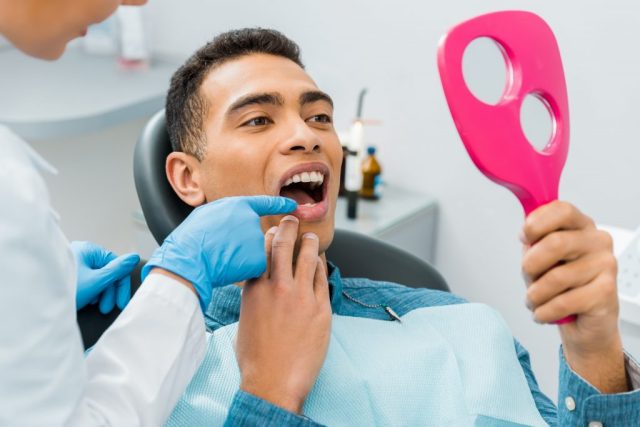Taking Care of Your Dental Crowns for Long-Lasting Success
Dental crowns are a reliable and popular solution for restoring damaged or weakened teeth, offering strength, protection, and a natural-looking smile. Whether you have a porcelain crown, a zirconia crown, or a porcelain-fused-to-metal crown, proper care after crown placement is essential to ensure long-lasting results.
At our Chicago, IL, dental office, Dr. Bianca Clark and our dental team help patients from Evanston, Oak Park, Skokie, Cicero, Berwyn, and surrounding areas maintain their dental crowns for years of durability and comfort. Call (312) 212-3304 to schedule a consultation with our cosmetic dentist near you and learn more about dental crown procedures.
Why Proper Care for Dental Crowns Matters
Taking care of your dental crown is crucial not only to maintain its natural look and function but also to protect the underlying tooth structure. Here’s why aftercare matters:
- Healing and Recovery: After crown placement, your gums and surrounding tissues need time to heal. Following your dentist’s instructions helps minimize discomfort, reduce the risk of gum inflammation, and ensure your crown fits properly.
- Maintaining Good Oral Hygiene Habits: Brushing and flossing properly are essential. Pay special attention to the area where your crown meets the gum line, as plaque buildup can lead to gum disease or decay under the crown. Use a soft-bristled toothbrush and fluoride toothpaste to protect your smile.
- Regular Dental Visits: Routine checkups at the dentist’s office allow your dentist to examine your crowns, detect early signs of issues, and keep your natural teeth healthy. Dental crowns typically last many years, but neglecting dental care can shorten their lifespan.
- Longevity of Crowns: With proper care, most permanent crowns last 10 to 15 years or longer. Following recommended aftercare practices ensures your new crown continues to look natural, restore function, and protect your tooth.
Essential Tips for Caring for Your Dental Crown
Basic Aftercare
Maintaining a crown is similar to caring for natural teeth, with a few key differences:
- Practice Good Oral Hygiene: Brush at least twice daily and floss daily, using a floss threader if needed to clean around the crown. Rinse with antimicrobial mouthwash to prevent plaque buildup and gum disease.
- Avoid Hard and Sticky Foods: Protect your crown by avoiding ice cubes, hard objects, chewy foods, and sticky foods that can damage or dislodge it.
- Minimize Staining Substances: Limit coffee, tea, red wine, and tobacco to maintain the brightness of your porcelain or zirconia crowns.
Oral Hygiene Techniques
Maintaining proper oral hygiene is essential to preserving the health and appearance of your dental crowns. Here are some dental crown aftercare tips related to oral health and hygiene practices:
- Brushing Techniques: Use gentle, circular motions with a soft-bristled toothbrush. Pay attention to the gum line for optimal oral health.
- Flossing: Essential for removing food particles between teeth and crowns. Consider a water flosser for ease of cleaning.
- Rinsing: An antimicrobial mouth rinse helps reduce bacteria and prevent gum inflammation.
Lifestyle Considerations
Certain lifestyle habits can impact the longevity and performance of your dental crown. Here are some tips to consider:
- Prevent Teeth Grinding: If you grind your teeth or clench at night, a custom night guard can protect your crowns.
- Protect During Sports: Wear a mouthguard if you play contact sports to prevent crown damage.
- Watch Acidic and Sugary Foods: Limit sodas, citrus juices, and sugary snacks, which can erode enamel and weaken the crown’s underlying tooth.
Caring for a Temporary Crown
Many patients receive a temporary crown before the permanent crown is ready. Proper care for your temporary crown is important:
- Avoid sticky, chewy, or hard foods
- Chew on the opposite teeth
- Avoid hot foods that can loosen the temporary crown
- Rinse with warm salt water if needed
- Avoid direct flossing around the temporary crown
- Be mindful of any looseness or discomfort and monitor for swelling or reactions
- Attend your second visit for permanent crown placement

